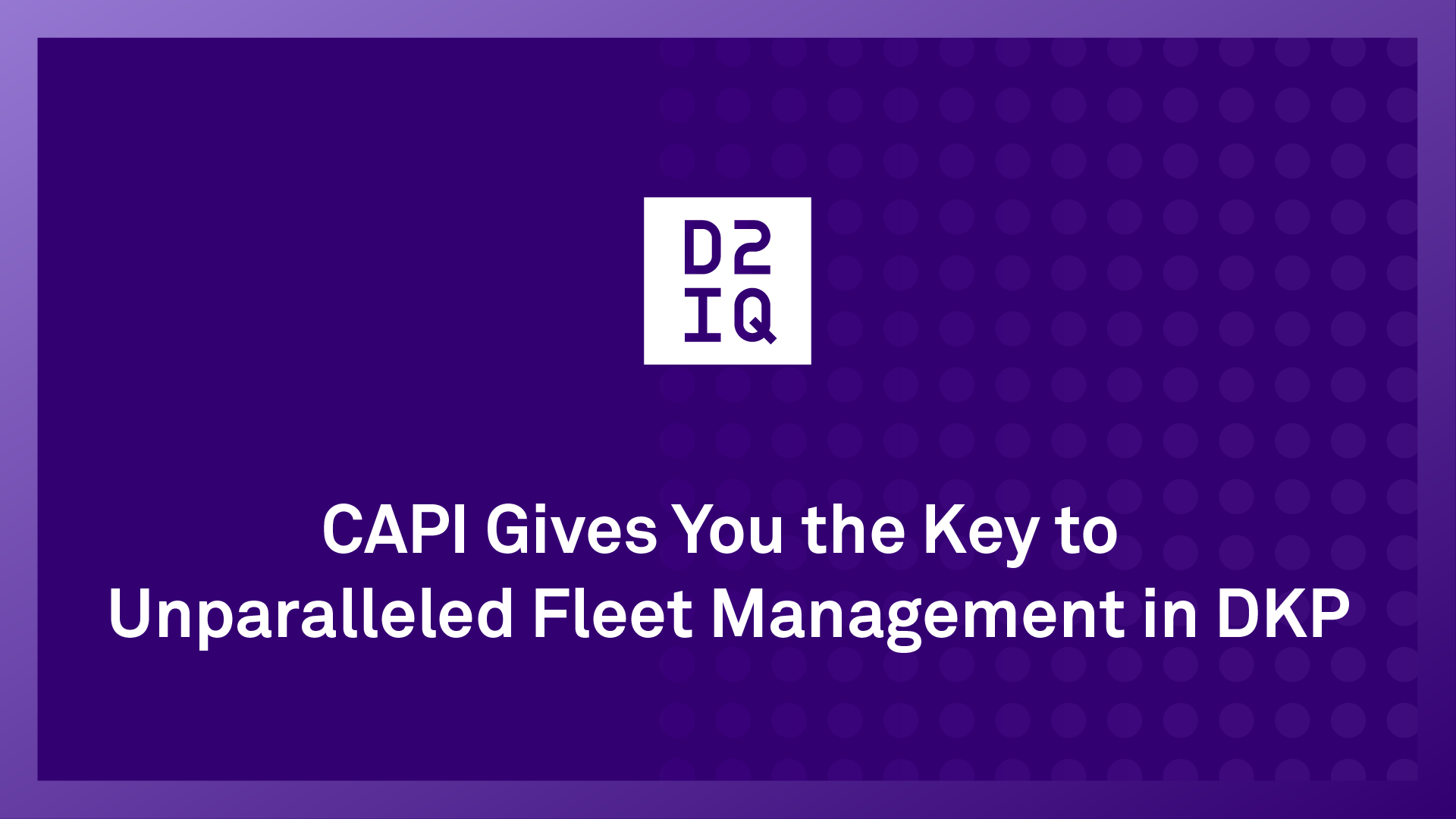Cloud and cluster sprawl is a problem affecting numerous organizations, undermining the efforts that led to cloud-native Kubernetes deployments and resulting in wasted resources, inefficient operations, and poor return on investment.
The best way to bring cloud and cluster sprawl under control is through centralized multi-cloud and multi-cluster fleet management.
Through a single pane of glass, DKP is unique in its ability to provide centralized multi-cloud and multi-cluster management across all environments, including hybrid environments and across the top three cloud provider services (Amazon Web Services, Microsoft Azure, and Google Cloud Platform).
Integrated CAPI Is the Key
A key enabler of DKP’s strong fleet management capability is integrated Cluster API (CAPI). DKP was engineered to incorporate CAPI as a foundational technology, enabling DKP to become an abstraction layer for Kubernetes management. This was a significant engineering effort that took dozens of person-years to accomplish and has been proven in the field.
CAPI allows for a true declarative approach to managing clusters and applications. By declaring the desired end state, the CAPI provider can execute endpoint-specific actions that deliver that desired end state.
The thorough integration of CAPI in DKP provides the following benefits:
Consistency and Standardization. D2iQ’s top-to-bottom integration of CAPI makes D2iQ the only vendor to provide such a thorough and consistent declarative API approach across all infrastructures and deployment patterns (cloud, on-premise, hybrid, edge, and air-gapped).
Elasticity. CAPI enables you to automatically scale your Kubernetes clusters up or down, making it easier to handle changes in workload and traffic. This can help ensure that your resources are used efficiently and that your clusters can support your application's demands. Elasticity enables businesses to rapidly adapt to changing workload demands and optimize resource utilization, yielding cost savings.
Self-healing. CAPI supports mission-critical high-availability and backup-and-restore capabilities required in production environments.
Better Security. CAPI provides built-in security features, such as role-based access control (RBAC), including custom roles, and can help ensure that only authorized users can access your clusters. In addition, CAPI can ensure that your clusters comply with security best practices through immutable cluster deployments. CAPI has native integration with RBAC mechanisms available through the underlying infrastructure provider (for example, IAM on Amazon Web Services).
Policy Management. DKP’s integrated policy management capability is part of an Infrastructure as Code (IaC) approach, providing an additional layer of security consistency.
CAPI Gets Better
The Kubernetes ecosystem is rapidly growing, so having a proven method to easily plug in a new CAPI provider’s solution to expand a platform’s capabilities means platforms can rapidly support new tools, architectures, platforms, processors, and more.
As a mature open-source project, CAPI enables you to leverage community-defined best practices when automating the deployment and management of Kubernetes clusters.
The open-source community’s effort around the development and maintenance of CAPI yields many infrastructure options to mitigate the risk of lock-in and maximize flexibility.
CAPI truly is a game changer in simplifying Kubernetes management. With CAPI as a key enabler, It is no exaggeration to say that DKP reigns supreme in providing centralized fleet management capabilities.

